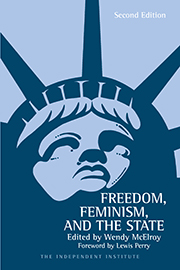“I just want to say to the men in this country, just shut up and step up.” Responding to Brett Kavanaugh’s hearing for his nomination to the Supreme Court, Sen. Mazie Hirono (D-Hawaii) put American men on notice: Their day was over. The mainstream press and social media were more specific in echoing who needed to shut up: old white men in government. According to social justice, the proper role for this privileged group is to mutely support victimized ones. Presumably, they could also step aside.
Congress has a culture war on its hands and the battles will blaze for the foreseeable future. Congress is a microcosm of the schism that is tearing America apart—ideologically, morally and emotionally.
Understanding the dynamics of the conflict requires a grasp of the “victimhood culture” that Hirono’s statement epitomized in its message and its tone. The message of this #MeToo approach is “get out of the way of oppressed groups”; the tone is rage.
A key to understanding the victimhood ideology is how it defines “justice.”
Identity justice
Victimhood is an integral part of identity politics and the social justice movement of past decades. People are separated into categories according to their secondary characteristics, such as gender or race. (Their primary characteristic is being human). A person’s political status is then viewed through the lens of his or her group identity, with heavy emphasis placed upon whether the group is considered to be oppressed or oppressive. Men oppress women, for instance. The purpose of social justice is to balance the status of all groups, which requires an imbalance of treatment because some groups are seemingly privileged at the expense of others.










